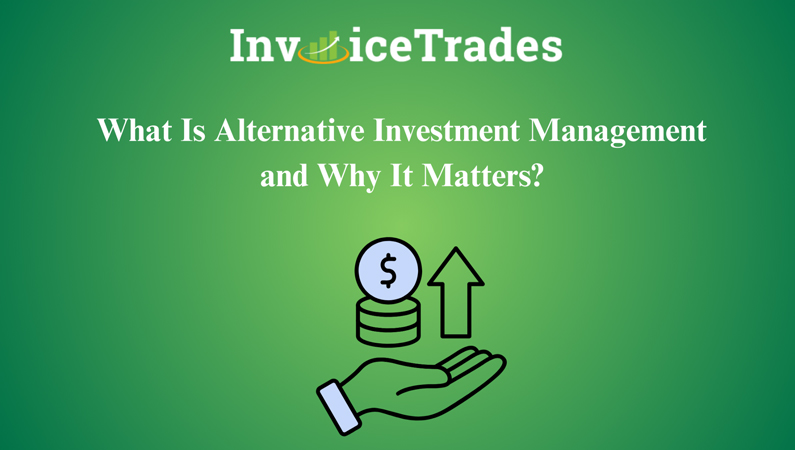In the ever-evolving world of finance, savvy investors are always on the lookout for strategies that can maximize returns while minimizing risks. While traditional investment vehicles like stocks and bonds have been the go-to options for decades, an increasing number of investors are turning to alternative investment management to diversify their portfolios and achieve higher returns. But what exactly is alternative investment management, and why does it matter? In this blog, we will explore the concept, its types, benefits, risks, and how to get started.
Understanding Alternative Investment Management
Alternative investment management refers to the process of managing non-traditional assets that fall outside the realm of conventional investment options such as stocks, bonds, and cash. These investments include private equity, hedge funds, real estate, commodities, and even cryptocurrencies. Unlike traditional investments, alternative investments are often less liquid and require a longer time horizon but can offer higher returns and diversification benefits.
The key difference between traditional and alternative investments lies in their risk-reward profile. Traditional investments are more regulated and generally considered safer. On the other hand, alternative investments are less regulated and can be more volatile but offer the potential for substantial returns.
Alternative investment management is primarily handled by specialized fund managers who have expertise in identifying and managing unique opportunities that can provide substantial returns over time.
Types of Alternative Investments
There are several types of alternative investments that investors can explore:
- Private Equity: Involves investing in privately held companies. These investments are not available on public stock exchanges. Private equity funds typically invest in startups, growing businesses, or companies that require restructuring.
- Hedge Funds: Aim to provide positive returns regardless of market conditions, making them an attractive option for investors looking for consistent performance.
- Real Estate: A tangible asset that offers both income and capital appreciation. Alternative investment management in real estate includes direct property investments, real estate investment trusts (REITs), and real estate crowdfunding platforms.
Why Alternative Investment Management Matters
Investors are increasingly recognizing the importance of alternative investment management for several reasons:
- Diversification: Alternative investments provide diversification by spreading investments across different asset classes. This reduces the risk of losses from a single asset class. For example, if the stock market crashes, alternative investments like real estate or commodities may still perform well.
- Higher Returns Potential: Alternative investments have the potential for higher returns. For example, private equity and hedge funds have historically outperformed public markets over the long term.
- Hedge Against Market Volatility: Assets like gold and real estate often retain their value even during economic downturns, providing stability to an investor’s portfolio.
- Access to Exclusive Opportunities: Private equity and hedge funds are typically reserved for high-net-worth individuals and institutional investors. Alternative investment management gives investors access to these exclusive opportunities.
Risks and Challenges of Alternative Investment Management
While alternative investment management offers many benefits, it is not without risks. Here are some challenges investors may face:
- Liquidity Issues: Many alternative investments have longer lock-in periods, requiring investors to wait years before they can cash out their investments.
- Complexity and Lack of Transparency: Alternative investments can be complex and difficult to understand. Additionally, they may lack the same level of transparency as traditional investments, making it harder for investors to assess their performance.
- Higher Costs: The management fees for alternative investments can be higher compared to traditional funds. Investors need to consider these costs when evaluating potential returns.
Who Should Consider Alternative Investments?
Alternative investment management is not suitable for everyone. It is ideal for:
- High-Net-Worth Individuals: Investors with significant assets who are looking for ways to diversify their portfolios and achieve higher returns.
- Institutional Investors: Organizations like pension funds and endowments that need to manage large sums of money over the long term.
- Investors with Higher Risk Tolerance: Alternative investments can be more volatile, so they are better suited for those who can handle higher levels of risk.
- Long-Term Investors: Many alternative investments require a long-term commitment to realize their full potential.
How to Get Started with Alternative Investment Management
If you’re considering alternative investment management, here are some steps to get started:
- Define Your Investment Goals: This will help you identify which types of alternative investments are best suited to your needs.
- Research Different Asset Classes: Understand the pros and cons of various alternative investments, such as private equity, hedge funds, real estate, commodities, and cryptocurrencies.
- Choose a Reliable Investment Manager: Work with a reputable investment manager who specializes in alternative investment management. Look for a track record of success and transparent communication.
- Monitor and Adjust Your Portfolio: Regularly review your portfolio’s performance and make adjustments as needed to ensure you’re on track to meet your financial goals.
Future of Alternative Investment Management
The future of alternative investment management looks promising as more investors recognize the need for diversification and higher returns. Key trends to watch include:
- Growth in Private Equity and Hedge Funds: These asset classes are expected to continue growing as investors seek higher returns.
- Rise of Sustainable and Impact Investments: Investors are increasingly looking for opportunities that align with their values and contribute to positive social and environmental outcomes.
- Technological Innovations: AI, blockchain, and big data are transforming how alternative investments are managed, making them more accessible and efficient.
Final Words
In today’s dynamic financial landscape, alternative investment management plays a crucial role in helping investors diversify their portfolios, achieve higher returns, and hedge against market volatility. While it comes with its own set of risks and challenges, the potential rewards make it an attractive option for high-net-worth individuals and institutional investors.
By understanding the different types of alternative investments and working with a reliable investment manager, you can make smarter investment decisions and secure your financial future. As the market continues to evolve, staying informed and proactive will ensure you make the most of these exciting opportunities.
